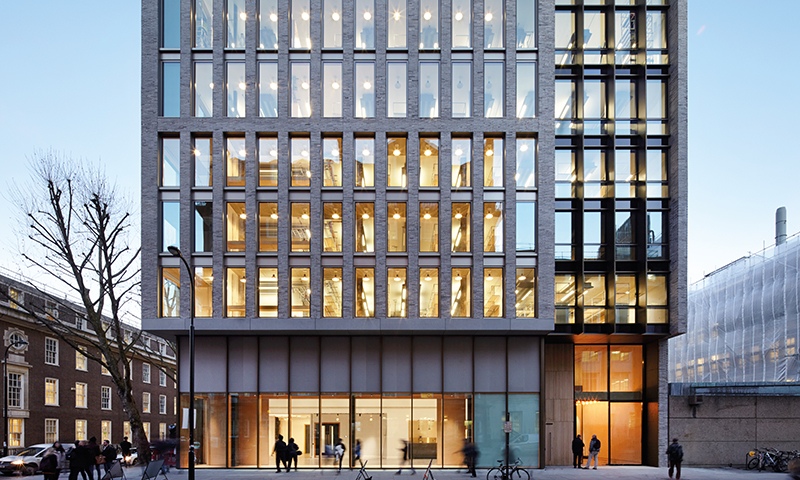This programme addresses the histories and theories of architecture, cities and landscape, positioning history and theory as an integral part of design.
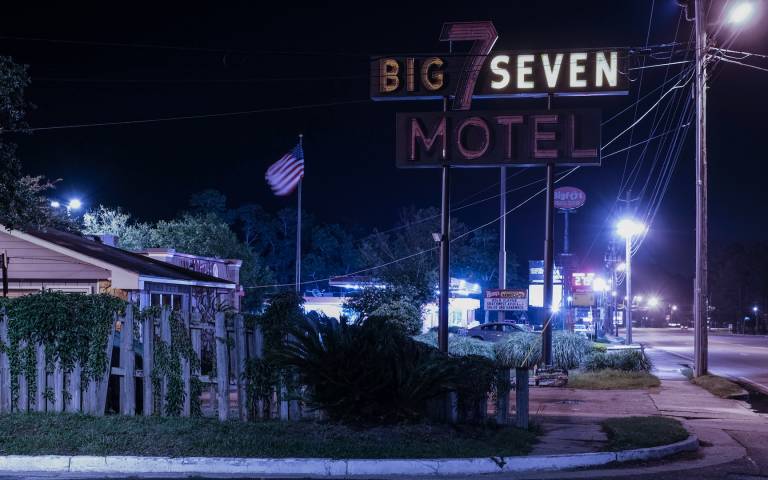 Overview
Overview

The MPhil/PhD programme in Architectural and Urban History and Theory addresses the histories and theories of architecture, cities and landscape. It encompasses how these are affected by intellectual, social, economic, political and environmental contexts over time. The programme’s purpose is to educate candidates in history and theory, not as supplementary discourses to architectural, urban and landscape design, but as integral parts of these fields of knowledge, in past, current and future issues facing society.
Students are expected to become independent thinkers, making an original contribution to knowledge and expanding the disciplinary discourse in their field of inquiry. They are encouraged to reflect, within the shifting boundaries of their discipline, the rapidly changing nature of the architectural profession and how these are affected by societal and institutional challenges.
Candidates use a range of methods from field work and archival research to ethnographic and qualitative tools. They draw from the unique multi-disciplinary environment of The Bartlett Faculty of the Built Environment and UCL’s departments, including, but not limited to, anthropology, political science, forensic science, literature, the fine arts, history of technology, environmental history and ecology.
History and Theory doctorates at The Bartlett began in the years after Reyner Banham came to the school (then the School of Environmental Studies) in 1964 as Reader in Architectural History. The most celebrated of Banham's early students was Charles Jencks, whose 1969 thesis became the book ‘Modern Movements in Architecture’ (1973).
View the UCL Prospectus page for this programme
Structure
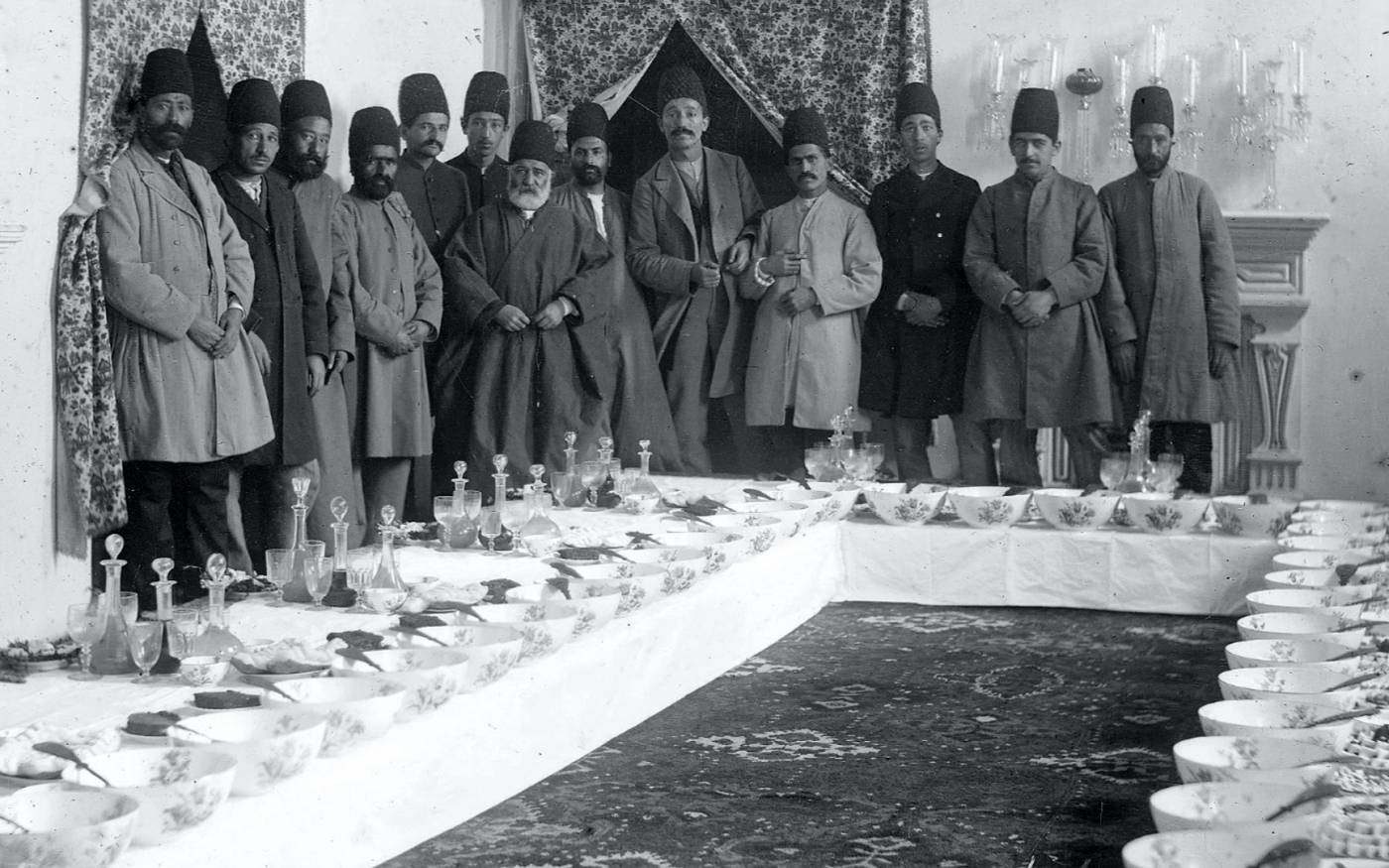
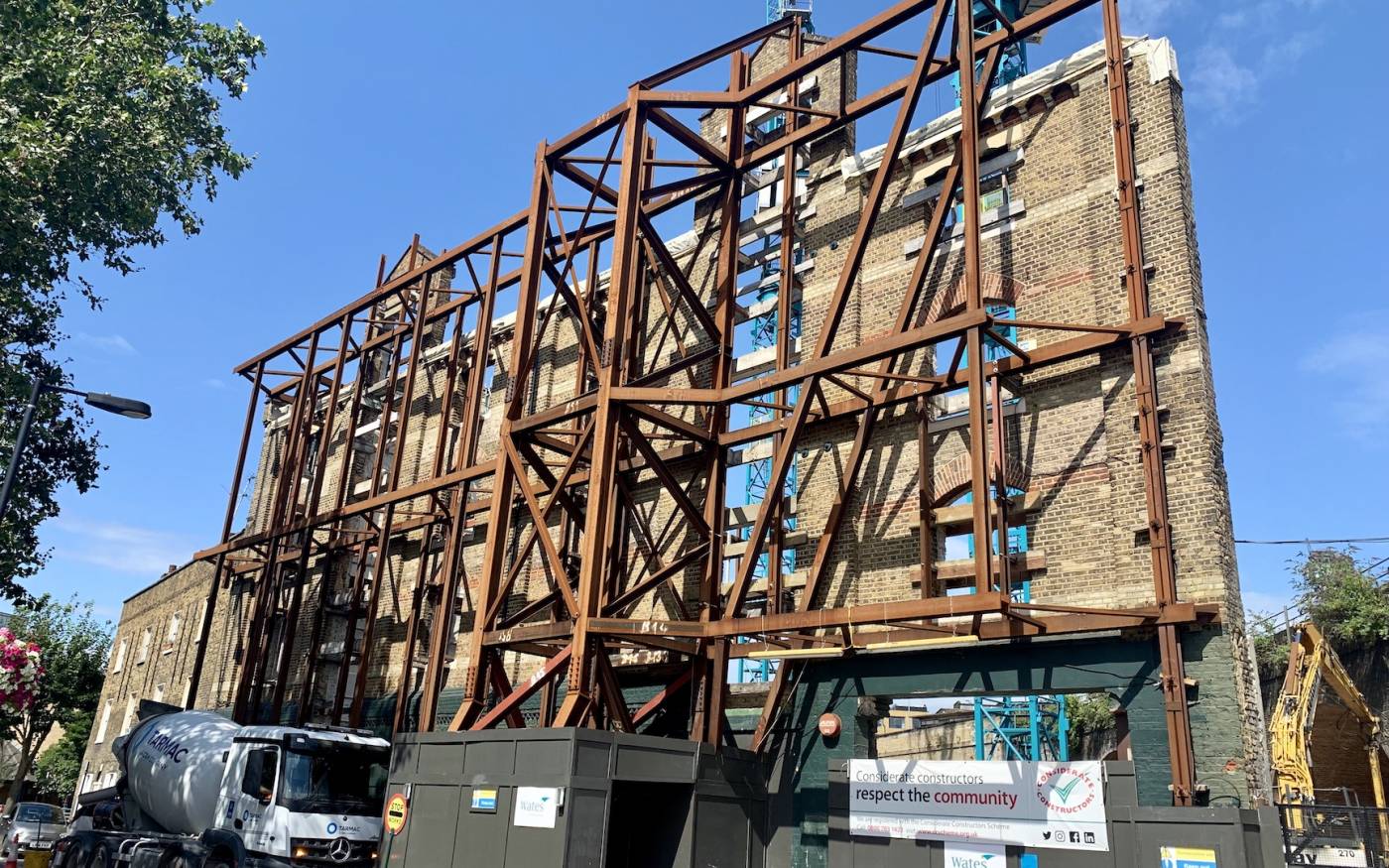
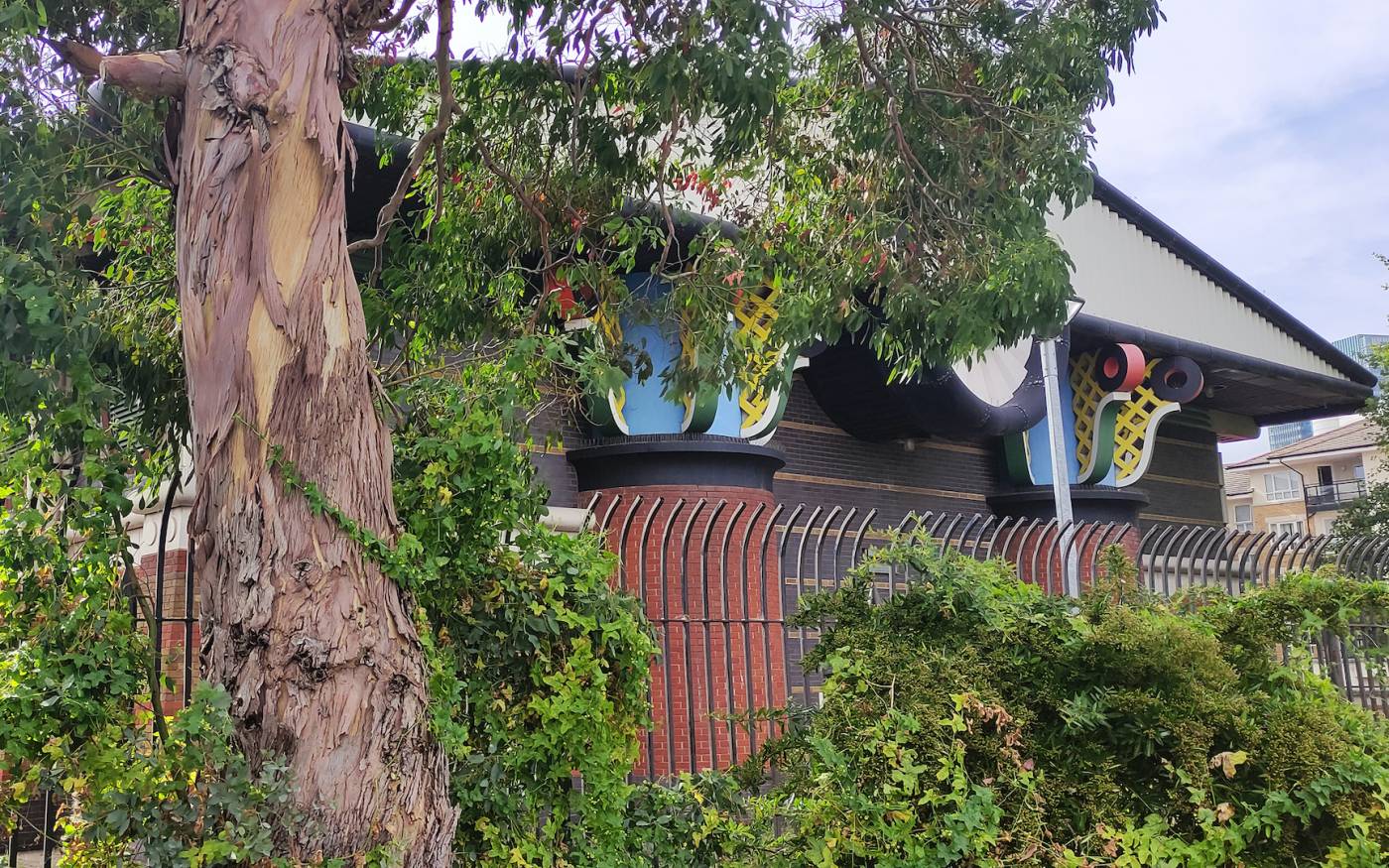
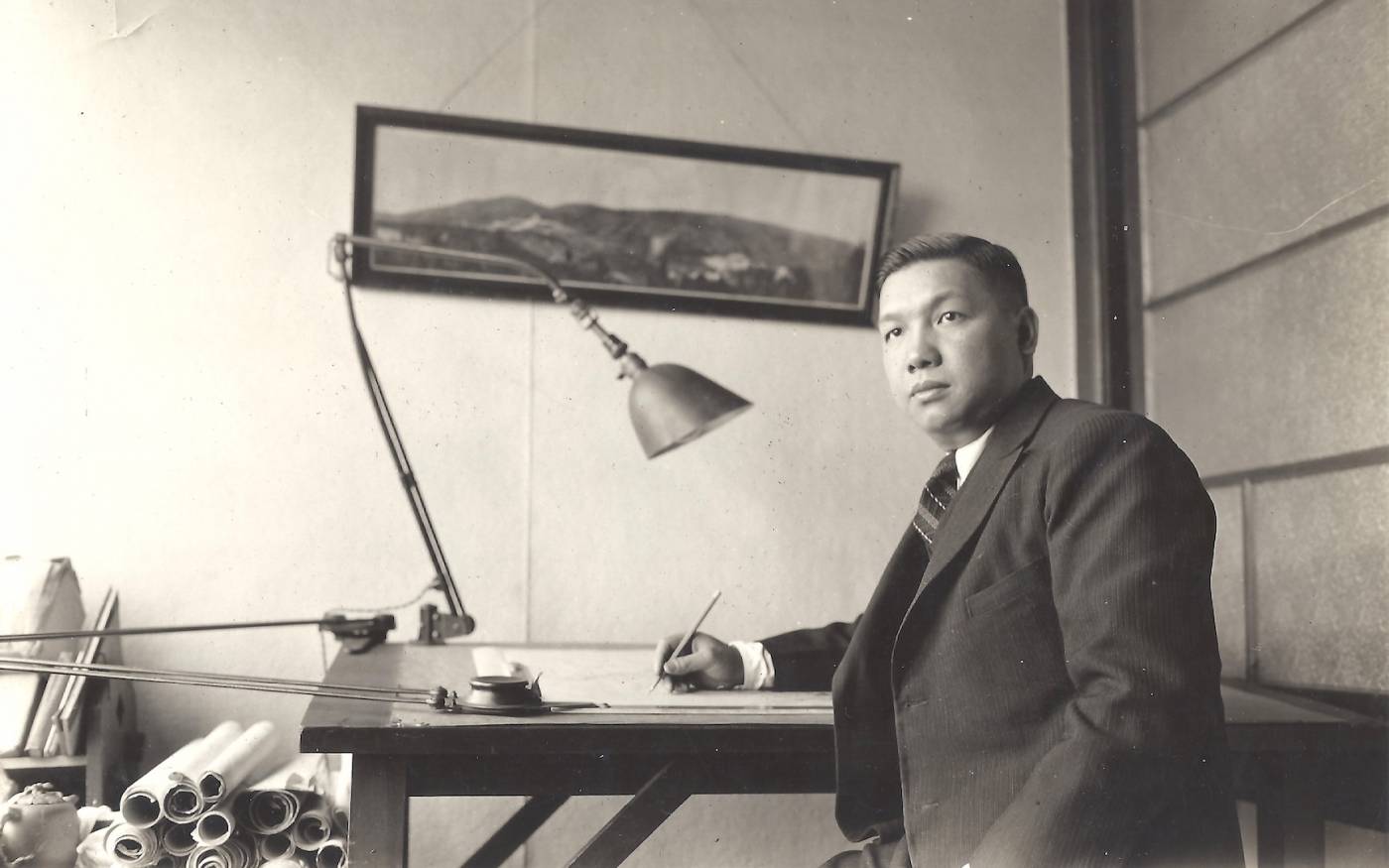
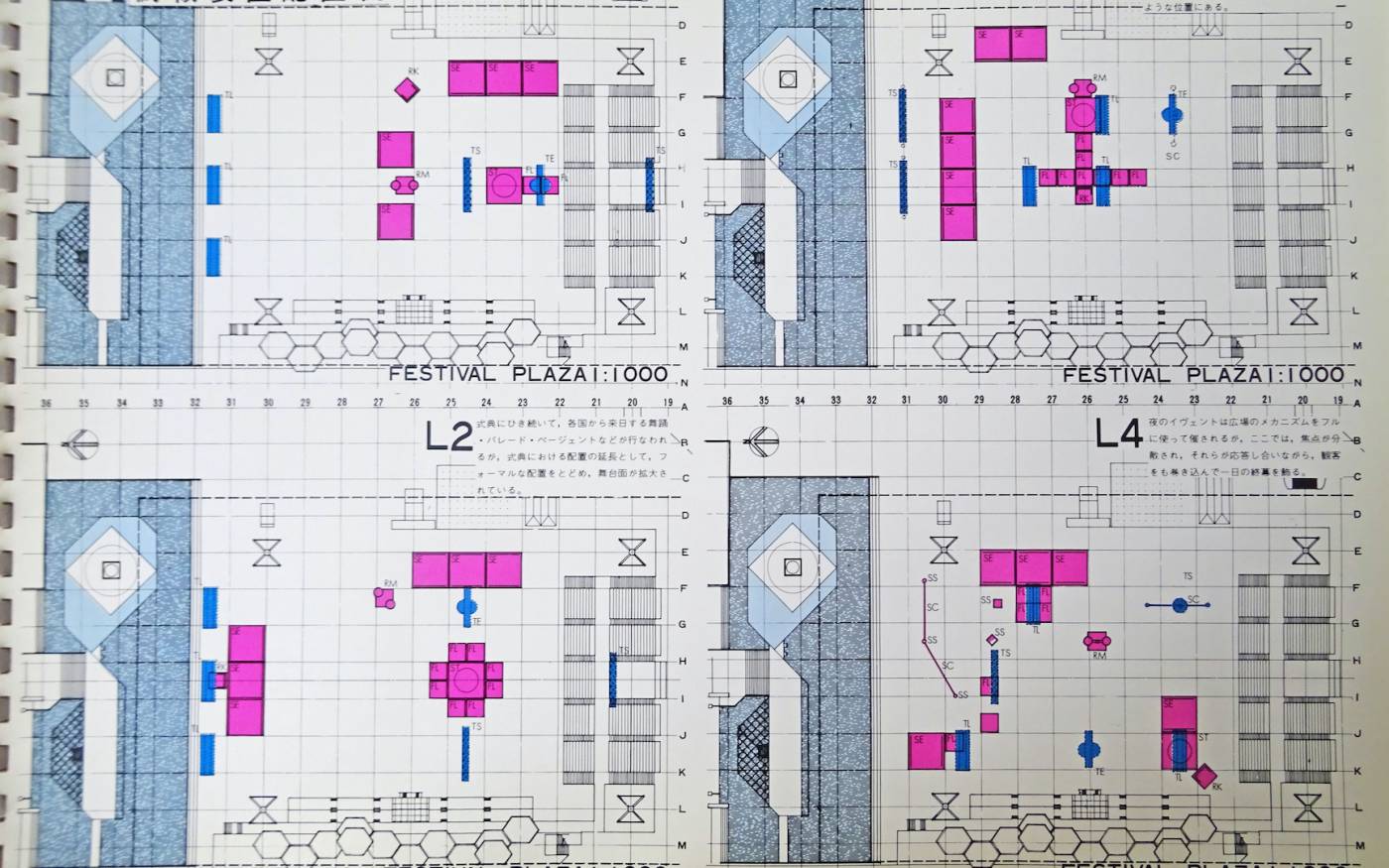
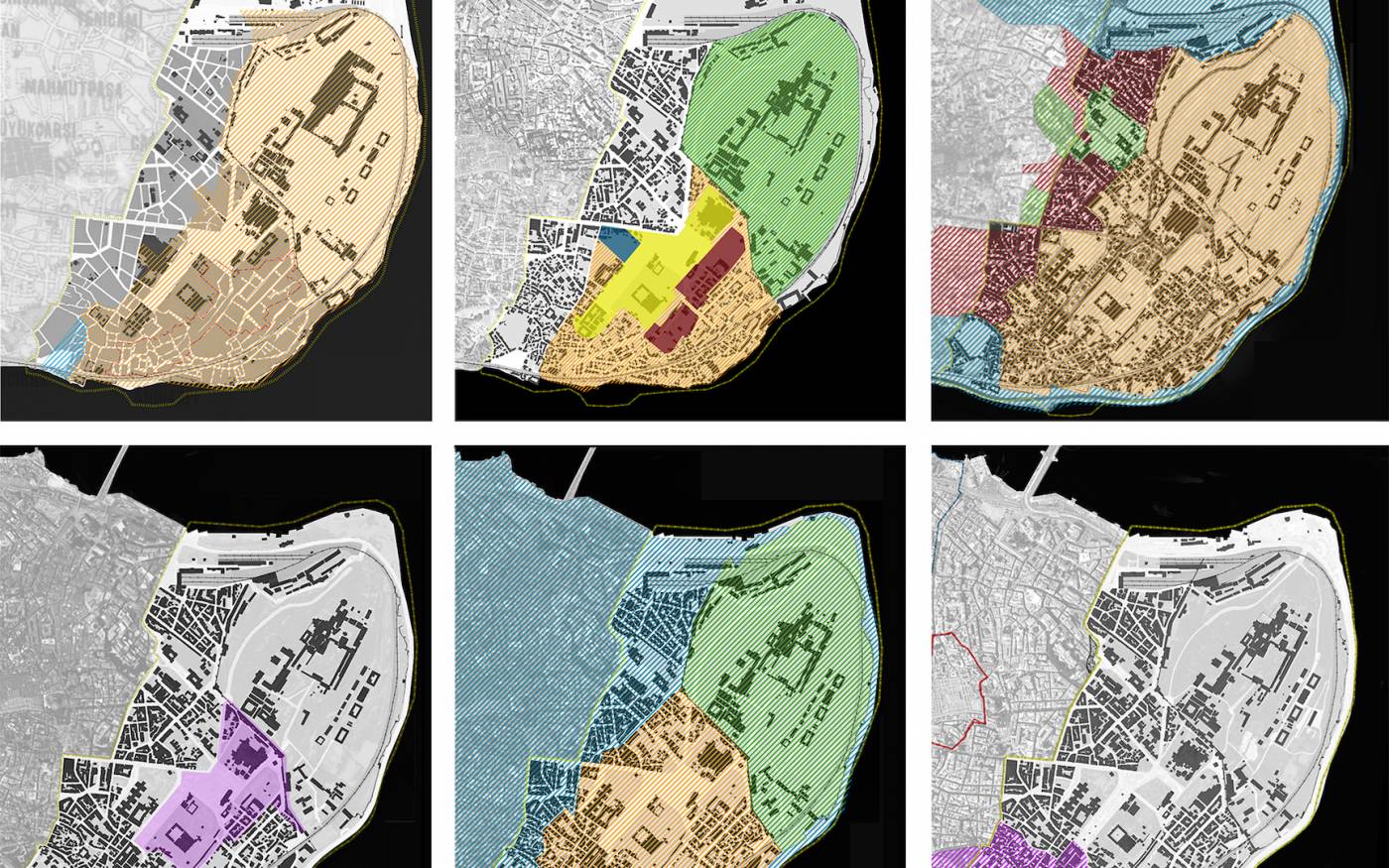
Developed through individual research investigations and supported by regular tutorials with a principal and a secondary supervisor, an Architectural and Urban History and Theory thesis consists of a text of around 80,000-100,000 words.
In their first year, candidates are registered as MPhil students, but are then expected at the end of that year (or second year if part-time) to upgrade to PhD status. A full-time candidate is expected to complete the PhD in three to four years, whilst a part-time candidate completes theirs in five to seven years.
Within The Bartlett School of Architecture, the Architectural and Urban History and Theory MPhil/PhD programme has a longstanding, fruitful association with the Architectural Design MPhil/PhD programme. Every year the programmes collectively organise a series of regular seminars and events:
Research Introductions
Initial presentations by new MPhil students.
Research Conversations
In-depth seminars to meet the criteria for upgrade from MPhil to PhD status.
Research Projects
An annual PhD conference and exhibition with international critics as respondents, so that students can present and discuss work-in-progress.
Read the PhD Research Projects publications on Issuu
Candidates also have the option of auditing taught modules from the Architectural History MA, led by Professor Peg Rawes, or the Landscape Architecture MA/MLA, led by Professor Laura Allen and Professor Mark Smout.
Supervisors
The programme draws upon the wide range of research expertise offered at The Bartlett School of Architecture. Supervisors are selected depending on the student’s specific research area. The principal doctoral supervisor is within The Bartlett School of Architecture, while the subsidiary supervisor can be from The Bartlett or another UCL department, including anthropology, medicine, or fine art, for example. The intention is for doctoral subjects and supervisions to be as broad as the discipline of architecture and to connect research to related disciplines to foster productive and rewarding collaborations. The school also has a fruitful association with the doctoral programme at the Royal Academy of Music.
To discuss a potential Architectural and Urban History and Theory MPhil/PhD, it is recommended that you read the profile of the principal supervisor with whom you would like to work and email them a research proposal. Alternatively, you may contact the Programme Director.
Current supervisors
- Current supervisors
Professor Peter Bishop
Application of urban design and urban planning theory; incremental urbanism; temporary uses and installations; role of conservation in distorting urban change; role of other stakeholders and political forces outside the design process in the construction of the built environment.
Professor Iain Borden
History of modern architecture; urbanism and urban culture; skateboarding, graffiti and urban arts; public space; experiences of architecture; film, photography and other urban representations; critical theory and cultural studies.Roberto Bottazzi
The aesthetic, spatial and philosophical impact of digital technologies on architecture and urbanism.Professor Eva Branscome
Architecture as evidence of contested histories; Historic urban environments and their tangible and intangible heritage; Modern architecture in Europe; Migration of ideas and people and how this is readable within the urban fabric; Cities as complex cultural constructions; Gender as it affects the subdivision and use of built spaces; Domesticity; Museums, exhibition design and curatorial practice; Avant-garde art and renegade urban art forms such as street art; Performance spaces; Photography as a medium between architecture and culture.Professor Barbara Campbell-Lange
Projects that imaginatively unfold notions of event, object and unbuilt environment; that think otherly about discipline and category, politics, technologies and philosophies; that evolve verbal with non-verbal methodologies; that explore ancient and contemporary (minimalist) composition in the arts and humanities.Professor Ben Campkin
Histories, theories and practices of urbanism and urbanisation. Transdisciplinary urbanism and experimental methods of urban research, publication and public engagement. Urban night spaces, cultures and governance. London’s history and built environment; contemporary urban policy and practice in London. Queer space, architecture and architectural histories; heritage associated with Lesbian, Gay, Bisexual, Trans and Queer populations.Professor Mario Carpo
History of architectural theory and history of cultural technologies, with focus on the early modern period (the Vitruvian tradition and the Italian Renaissance, from Alberti to Vignola) and on contemporary digital design theory (1990 to the present).Dr Megha Chand Inglis
History and theory of architectural practices in and from the Indian subcontinent, and more broadly the Global South; the play of relations between 'the west' and the 'non-west;' the colonial encounter; Indian temple building communities; the 'non-modern' in global architectural modernity; epistemological vantages in design and production; the politics of technology; subaltern building communities; knowledge production; relations between texts and contemporary architecture; diasporic cultures of building and place making; migrant labour in the global diaspora; postcolonial theory and approaches.
Professor Nat Chard
Architecture and indeterminacy; relationship between ideas and technique in architectural representation and manufacture; experimental practices in architecture; developing methods of drawing and making as a means of architectural research.
Professor Marjan Colletti
Digital design and digital theory; experimental building and urban design; innovative CAD/CAM fabrication technologies; neo-baroque and exuberant synthetic and syncretic design techniques.
Professor Marcos Cruz
Innovative environments; utilisation of bacteria and algae; computation; bio-technology and synthetic biology.Dr Edward Denison
Histories and theories of modernism and modernity outside ’The West'; Africa, Eastern Europe, Asia, especially China and Chinese encounters with modernity domestically and/or globally; colonialism, post-colonialism, and globalisation; cultural heritage and critical approaches to urban heritage; community engagement/campaigning and neighbourhood planning.
Professor Murray Fraser
Architectural design; design research; architectural history and theory; cultural studies; architecture and globalisation; cross-cultural influences; cultural identity; urbanism.
Professor Stephen Gage
Time-based architecture; architecture that interacts with people and the external environment; architecture and performance.Dr Stelios Giamarelos
Postmodern and early digital architectural cultures and imaginaries; cross-cultural modes of regional architectural production; global and planetary architectural historiographies; oral histories of architectural education; resilience in architectural history; architectural discourse production through photography, exhibitions and publications; philosophy, science, technology, storytelling and narrative (from comics and literature to videogames) in architectural histories, theories and practices; and histories of disability and neurodiversity in architecture.Dr Sam Griffiths
Theories and methods for researching and writing the historical relationship between urban populations and their built environments; the spatial cultures of industrial cities, suburbs and high streets; urban manufacturing; architecture as chronotope in realist fiction and historical writing; space syntax as an interdisciplinary approach to research in the humanities and social sciences.Peter Guillery
London's buildings and topography of the 16th to 21st centuries, especially housing, industrial buildings and vernacular architecture.Dr Sean Hanna
Spatial cognition; mathematical and computational modelling of spatial and social relationships; individual and collective creativity; machine learning and intelligence; complexity and big data.
Dr Penelope Haralambidou
Architectural drawing and making as research methods; art and architecture; Marcel Duchamp; architecture and allegory; theories of perception, memory, imagination and representation in design; visual technologies – historical and contemporary; experimental film and digital projection; exhibition design and curating; book architecture; stage design; and the design of public spaces.Dr Chris Leung
Prototyping through digital modelling, simulation, fabrication and instrumented testing as a modus operandi for design research; timber construction and sustainable approaches to the design of timber buildings; passive low-energy actuator technologies (phase-transitioning waxes, thermo-bimetals, shape memory alloys) for environmental control in buildings; digital and hybrid digital-analogue control systems for facade systems; solar energy; passive cooling with optically selective radiators; embodied mechanical logic; advanced manufacturing processes e.g. design for multi-material polymer printing.
Professor Yeoryia Manolopoulou
Architectural design and theory; design research methods; architecture and experience; collaborative, aleatoric and performative design; dialogic architecture; place, material practices and building; pedagogic settings; theories of embodied mind, action and environment; the architectural score; practices of drawing; architecture’s intersection with art, anthropology and neuroscience.Dr Claire McAndrew
Architectures of care; co-design and participatory practice; social practices; experimental methods of engagement; place-based research; ethnographic methodologies; spatially just and inclusive, design futures.Dr Clare Melhuish
Anthropology of architecture, the built environment and urban processes; ethnography of architectural practice; urban and architectural visual and material culture; postcolonial urbanism; critical urban heritage; modern(ist) architecture and planning in London; French modern(ist) architecture and planning; Arab cities; Caribbean urbanism; universities and urban regeneration; education spaces and the city; participatory and community-led planning; anthropology of home and domestic space; ethnographic methodologies.Dr Shaun Murray
Architectural research through design; agency of architectural drawing in process and result, ecological thinking, and field theory relations; histories, theories, and futures of communicating architecture through the inter-relations of designing ecologies; ecology, landscape, geology, and material dynamics in relation to site through mappings and choreographies; surrealism and Correalism in architecture; adapting buildings to occupants through reflexive design in architecture and technology; hybrid methods of communicating architecture, transdisciplinary approaches, non-linear and non-reductionist modes. I’m the Editor-in-Chief of Design Ecologies journal at Intellect books which covers a host of contemporary research of practicing through design.Professor Alan Penn
Urban research at the scale between the building and the city; design of complex buildings and their relations to organisations (i.e. hospitals, laboratories and offices); development of computing for architecture; urban pollution dispersal; virtual reality applications for the built environment; simulation of social phenomena and urban growth and change.
Professor Barbara Penner
Tourism; American hotels, resorts, and commercial architecture; gender and space; domesticity; consumerism; bathrooms and infrastructure; inclusive urbanism; appropriate technology.
Professor Sophia Psarra
Architecture narrative and fiction, geometry of architecture and urban space; conceptual order, spatial morphology and spatial experience; the formation of spatial meaning in architecture and symbolic languages across different media; architectural theory; the morphology of cities in relation to processes of industrialisation, de-industrialisation and innovation; spatial design of complex buildings and its relation to society and organisations; computer modelling and visualisation.Dr Lakshmi Priya Rajendran
Everyday urbanism; decolonising futures; city imaginaries; counter-urbanism and degrowth; climate justice and resilience; inclusive and liveable cities; peripheral geographies; phenomenology and spatial practices; decolonial methodology; identity and belonging; critical digital media and city experience; culture and memory; socio-spatial practices and public spaces.
Professor Peg Rawes
Climatic, planetary and ecological practices; environmental aesthetics, poetics theory and practices; feminist, intersectional and decolonial theory and practices; histories and theories of vulnerability, wellbeing and care; political and ecological critiques of computation.Guang Yu Ren
Coloniality, modernity and the modern in the ‘non-west’; Lived experiences and cultural identities of the other; Cultural heritage and the built environment; Architecture, art practices, urbanism and identity in 20thcentury and contemporary China and the region.Professor Jane Rendell
Gender/feminist theory and architecture; art, architecture and urban interventions; critical spatial theory and practice; creative/critical subjectivity and positionality in writing or site-writing; psychoanalysis and space; public space, cultural identity and narrative.Dr David Roberts
Mobilising histories and futures of social housing in London; developing action research with community groups under threat from urban policy; empowering ethical built environment pedagogy and practice; devising socially engaged site-specific performance; nurturing forms of collaboration and collectivity; extending architectural history and design education to young people.Dr Tania Sengupta
Postcolonial and transcultural studies; colonial, post-colonial/contemporary architecture and urban history (non-western worlds, especially South Asia); postcolonial identities in western contexts. For non-western contexts: architectures of governance; provincial identity and rural-urban relationships; spatial cultures of domesticity; material and spatial cultures; global, local and scalar relationships in architecture/ urbanism; everyday spaces and practices.Professor Bob Sheil
Architecture and design through production, experimental design, prototyping, making, fabrication, craft, innovative technology, digital practice, digital manufacturing, assembly, materials, modelling, transgression from drawing to making, 3D scanning.Professor Mark Smout
Design-based approach to architecture, landscape (urban and rural) and climate change via political, technological and artistic disciplines.Dr Nina Vollenbröker
Aural diversity and deafness. Disability and bodily difference. Institutional spaces including hospitals and specialist schools. Early modernist Austrian and German architecture. Spaces of home, especially in the context of migration and long-term mobility. Intersections of material culture, photography, and space. Quilts and textiles. Manuscript diaries and oral histories.Professor Tim Waterman
Landscape studies, landscape architecture, landscape history; imaginaries—moral, social, ecological, radical, and utopian; democracy, citizenship, justice, and the right to landscape; taste, manners, customs, and commons; food and foodways; utopian studies; urban and rural studies; sustainability and regenerative design.Dr Robin Wilson
The architectural media (especially the architectural journals of the 20th century); architectural photography; architectural criticism; arts-based and performative methods of spatial research; curatorship and architecture; utopian theory.Oliver Wilton
Architectural design, environmental design, and sustainability. Architecture, construction, industrial and environmental histories. Physical prototyping, digital simulation, and architecture performance. Developing simple new forms of construction. Architecture lifecycle, industrial symbiosis, inhabitation and related resource systems, circular metabolism. Biogenic materials, seasonality, and microclimate augmentation.Dr Fiona Zisch
Cognitive architecture / neuroarchitecture; spatial cognition; cognitive ecologies; neurophilosophy; radical embodiment; embodied knowledge and intuition; cyberfeminism; technology, interaction, performance; movement, choreography.Stamatis Zografos
Critical heritage studies; urban memory and archives; cultural studies; intersections of architecture/conservation and psychoanalysis; fire, urbanism and precarity; urban violence; destruction and evolution/regeneration.
Research Proposal
The research proposal is crucial to our decision on your application since it demonstrates your ability to identify and articulate an independent line of research inquiry. In not more than 2000 words, you should explain the subject of your proposed research, the questions you hope to answer, why you think this knowledge will be of value, your intended method, and the sources you will use.
As an original contribution to knowledge, a PhD thesis must identify and discuss an identifiable field of research, critique its principal works and texts, and indicate how the thesis is an original departure from and/or development of this research field. You should show that you have the ability and experience to carry out the research, and are familiar with the context, literature, and appropriate methods of research. Please offer a working title for your research and a select bibliography of key works.
It may be helpful to structure your proposal under the following headings:
- Working Title
- Research Project - broken down under the following headings: Subject/Aims/Key Research Questions/Academic Context/Methods (1500 words)
- Feasibility/Ability to complete - preparation to conduct research and previous experience (500 words)
- Select bibliography of key works (primary and secondary)
In addition, we request a C.V., a portfolio of design or other practice–led work or a link to your website (if applicable).
Application Guidance
The Bartlett School of Architecture, UCL, currently has no deadline for submission of applications for admission to the PhD programmes. Postgraduate research students can commence their study at certain dates during the academic year, so are not restricted to a September start date unlike postgraduate taught students. However, please note we will not be processing any applications in August and September for entry within the same academic year. During university breaks of Summer, Christmas, Easter, and in reading weeks in November (06–10 November 2023) and February (12–16 February 2024), slower responses can be expected. Please be reminded that the formal admissions process can be a lengthy one, between 2–3 months.
If you are considering applying for a scholarship, we ask you to familiarise yourself with all relevant guidance and allow sufficient time (6–8 months at least) ahead of deadlines. In many cases, our scholarship schemes require applicants to have submitted their UCL admission application prior to applying. Please submit admission applications at least two months in advance of scholarship deadlines. We will, for example, not process admission applications in November or December for applications that depend on scholarship deadlines in January; these admission applications must be submitted by the end of October.
Additionally, some scholarships may require a reference from your potential UCL supervisor. It is important to note that to request a reference, you must have had prior ongoing and positive conversations with a supervisor for them to be able to recommend you in good faith. Requests for references from potential supervisors should be made at the same time as formal applications for admission to the PhD programme and last-minute requests will not be considered. Please note that while scholarship applications require a reference letter from your potential supervisor, PhD applications require two independent references.
Careers
The programme equips scholars to educate tomorrow’s architects, preparing them for careers in university teaching and research, curatorial practice, journalism and media, policy making, academic publishing and architectural criticism among others. Recent graduate destinations have included the University of Oxford, University of Westminster and The Bartlett School of Architecture.
Contacts
Programme Director and Departmental Tutor: Professor Sophia Psarra
Programme Coordinators: Stelios Giamarelos and Stamatis Zografos
Programme Administrator: Emmy Thittanond
Lead image: Gas, Food, Lodging (photograph by Nina Vollenbröker, 2012).
Carousel images: 1. 'Home [Un]Making: Objectified Interiors, Tehran 1963–2013' by Azadeh Asgharzadeh Zaferani
2. 'Façadism in London: 1970–present' by Clemency Gibbs
3. 'Designing for Amusement' by Katerina Zacharopoulou
4. 'Building Identity: Transnational Architectural Exchange in New York City’s First Chinatown, 1870-2019' by Kerri Culhane
5. 'Frameworks of Uncertainty: Architectural Strategies of Control and Change in the Work of Cedric Price and Arata Isozaki (1955-1978)' by Marcela Aragüez Escobar
6. 'Musealisation as an Urban Process: The Transformation of Sultanahmet District in Istanbul’s Historic Peninsula' by Pinar Aykac
 Close
Close


